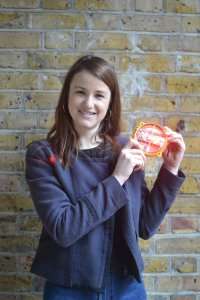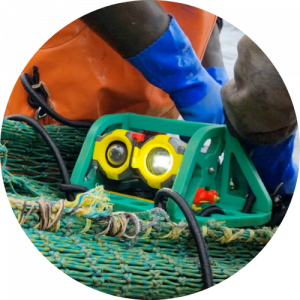
Hi Christina. Could you start by telling us what your role is and what you are working on here at SNTech?
I am a Business Analyst, here in a consulting capacity. My goal is to conduct an in-depth market analysis to figure out where SNTech should go to market next. We are launching our new product, Pisces, within the UK, and looking to launch into various other markets within the next couple of years. I’m looking into which markets we should enter, and figuring out a strategy for each market. Additionally, I’m working on a report for FTL Fish, which is a programme we received funding for that is preparing us for commercial readiness. In a regulatory capacity, we need to achieve these steps in order to achieve commercial viability from a governance perspective. This programme will enable us to achieve that.
What do you do on a typical day here at SNTech?
There is no such thing as a typical day! But I generally like to connect with team members across SafetyNet to make sure that I am getting the different perspectives from the Product Team, as well as the Engineering, Sales and Customer Success teams so that I have the most comprehensive view on what the most important indicators will be in terms of deciding which markets to enter next. I do lots of research and sense-checking with the COO, Nadia. It’s a lot of liaison with various teams!
Tell me what you’re currently working on.
Recently we went to Boulogne-Sur-Mer in France to meet the stakeholders in the FTL Fish project we’re currently part of. We learned a lot from the fishermen that were there, and the partner we have there, FromNord. Right now we are gathering and synthesising those insights and figuring out how they fit into the market analysis. There are two projects happening there in tandem, the FTL one looking more at commercial viability, and the other, Selux, is a scientific trial of our product, Pisces. This provides the pilot data which will allow us to go to market with confidence that we meet the needs of industry stakeholders. In other words, decreased bycatch, which decreases fuel costs, and increases fishing efficiency. This is the main value proposition for those people or companies who might buy Pisces.
It’s making sure that having tried and tested the product with people working in the industry, you’re bringing real value to the clients in ways that they need, and are able to implement at work.
Exactly. So in the case of these projects, FTL and Selux, the aims are to decrease the bycatch of juvenile whiting. Below a certain size, whiting cannot be sold, so it ends up being discarded. Because of the very strict quotas that the European Union has enforced in 2019, fishing crews are prevented from overfishing, but it’s hard for them to be more selective when it comes to catching the fish. They’re meeting their quota without hitting their production levels, which isn’t great for fish stocks, or fishers’ incomes. Hopefully, Pisces will be a gamechanger for them in terms of reducing bycatch. Right now we have several trials happening as part of this project – we’ve just completed the second one. The data from those trials will allow us to be more targeted or to make tweaks that are necessary to actually show that Pisces significantly reduces bycatch.
So you are making sure that you’re collaborating with the people who would actually be using the product, which is key to making sure that it works for them and the work they do. So what benefits do you see Pisces having for the commercial fishing industry more widely?
One of the biggest issues that fishers face is sorting time. They trawl, using deep-sea or pelagic trawls, and once they’ve pulled up their bounty into the boat, they spend an enormous amount of time sorting what can be sold from what can’t. By reducing bycatch, we reduce sorting time, which will improve life at sea for the fishers. They are generally at sea for 5 or 6 days, so it will make the world of difference to their wellbeing. They can sleep as little of 5 or 6 hours for that whole time period, so this will allow them to get better rest and be well-fed, thus reducing mistakes and preventing injury. It helps them have a better quality of life overall.
What role do you see SafetyNet playing in the long-term future of sustainable fishing and the industry more widely?
The fishing industry is huge and a lot of people depend on it for their livelihoods, so it’s not reasonable to expect people to fish less. But what Pisces can do is make the fishing more sustainable and selective, enabling fishers to catch fish that can actually be sold, making sure they are not over-fishing or catching fish that isn’t plentiful or is too juvenile. It will also stop them from having to throw away fish that is perfectly edible. I see SNTech and Pisces as making fishing more sustainable and ensuring the longevity of livelihoods, too.
What is the best thing about your job?
It’s very interesting work; it feels really good to stand behind such an important mission, and a company with such honourable values. I also really enjoy working with the team!
If you work in the fishing industry and are interested in finding out more about how our Pisces product can support your business, contact our customer success team: enquiries@sntech.co.uk






Enter this giveaway for the chance to try an underwater camera on your fishing vessel, with the help of a SafetyNet Technologies expert.